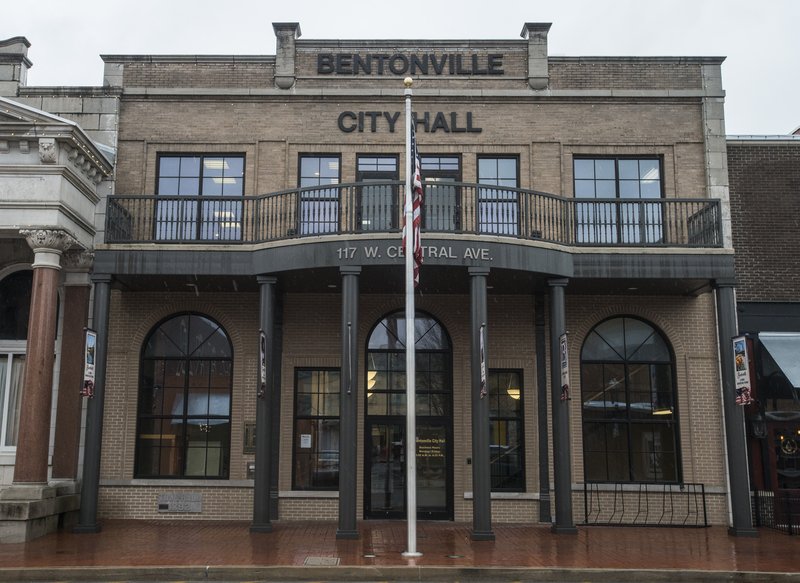BENTONVILLE -- The city is discussing establishing a utility board to help oversee its utility operations and provide recommendations to the City Council.
"We're still in the very early stages of even talking about this," Jake Harper, director of finance and administration, said during the council's Committee of the Whole meeting Feb. 11.
Bentonville Utilities
Bentonville owns its electric, water, sewer and wastewater systems. Charges for those services largely support the city’s utility fund. Additional supporting departments of those services include utility billing, inventory and public works.
Source: Staff Report
Utilities impact every resident and business, but it's one of the few departments without a board or commission behind it, he said.
The city owns its electric, water, wastewater and sewer utilities. Bentonville is one of two Northwest Arkansas cities owning its electric utility. Siloam Springs is the other.
The size of the utility operation has grown and now would be a good time to consider a board, Harper said.
The Utility Billing Department collected $93.8 million from more than 25,000 accounts in 2018, according to Mayor Stephanie Orman. The Electric Department installed 1,255 meters last year and exceeded its revenue projection by 7.3 percent for a total of $67.8 million.
The city operates with a general fund, which is paid for by tax revenue, and the utility fund, which is paid for by utility customers.
"Those books never actually cross," said Travis Matlock, engineering director, meaning the utility revenue only pays for utility expenses.
Officials said the proposed board would vet any decision or purchase made before going to the City Council for approval, similar to how the Planning Commission operates. The utility board would also evaluate rate studies.
The council in 2016 approved increasing electric rates by $10.31 -- based on an average bill of $99.74 -- gradually over three years. The study recommending those increases also recommended the city review the rates this year.
The board would likely be comprised of five to seven people and meet once a month, Matlock and Harper said.
The city has contracted with Jason Carter, attorney for the Arkansas Municipal Public Power Association, for $18,500 to provide more information on how a utility board could be established, Matlock said. He said Carter has more than 25 years in utilities in various capacities in North Little Rock.
"Because he's the AMPPA attorney, it gives us some insight into how these other cities operate," Matlock said. "We feel comfortable that he'll give us the best information possible with how to proceed with this."
Other cities in Northwest Arkansas -- such as Rogers, Springdale and Centerton -- have commissions overseeing water utilities.
In Centerton, the city owns the water system but the commission runs the day-to-day operation. It has authority to pass resolutions, contracts and other legal documents, said Mayor Bill Edwards.
"They run the whole water operation," he said. "They have their own budget. They have their own people."
Harper said the Bentonville board wouldn't be a different entity but support the department's operating and oversee the city's utilities. The council would still have the final say on decisions.
It's unclear yet whether members would be appointed by the mayor and approved by the council or they would be elected. However, city staff and council members seemed to lean toward having members appointed based on comments made at the Feb. 11 meeting.
An election would be required for a board of elected members, which can be more complicated than appointed board members, Harper said.
"That's the advantage of us appointing a board. You can select knowledge and create expertise that you may not be able to do if they were elected," said Cindy Acree, council member.
The board would need dedicated members who receive training and education, said Orman.
"We'll be selective in that process," she said.
More information about the board and what it might look like will be presented in the coming months. Then a few months would be spent selecting people for the board, Matlock said. The last four to five months would be spent training board members so the board could be operational by January, if the council approved creating a utility board.
NW News on 02/19/2019
